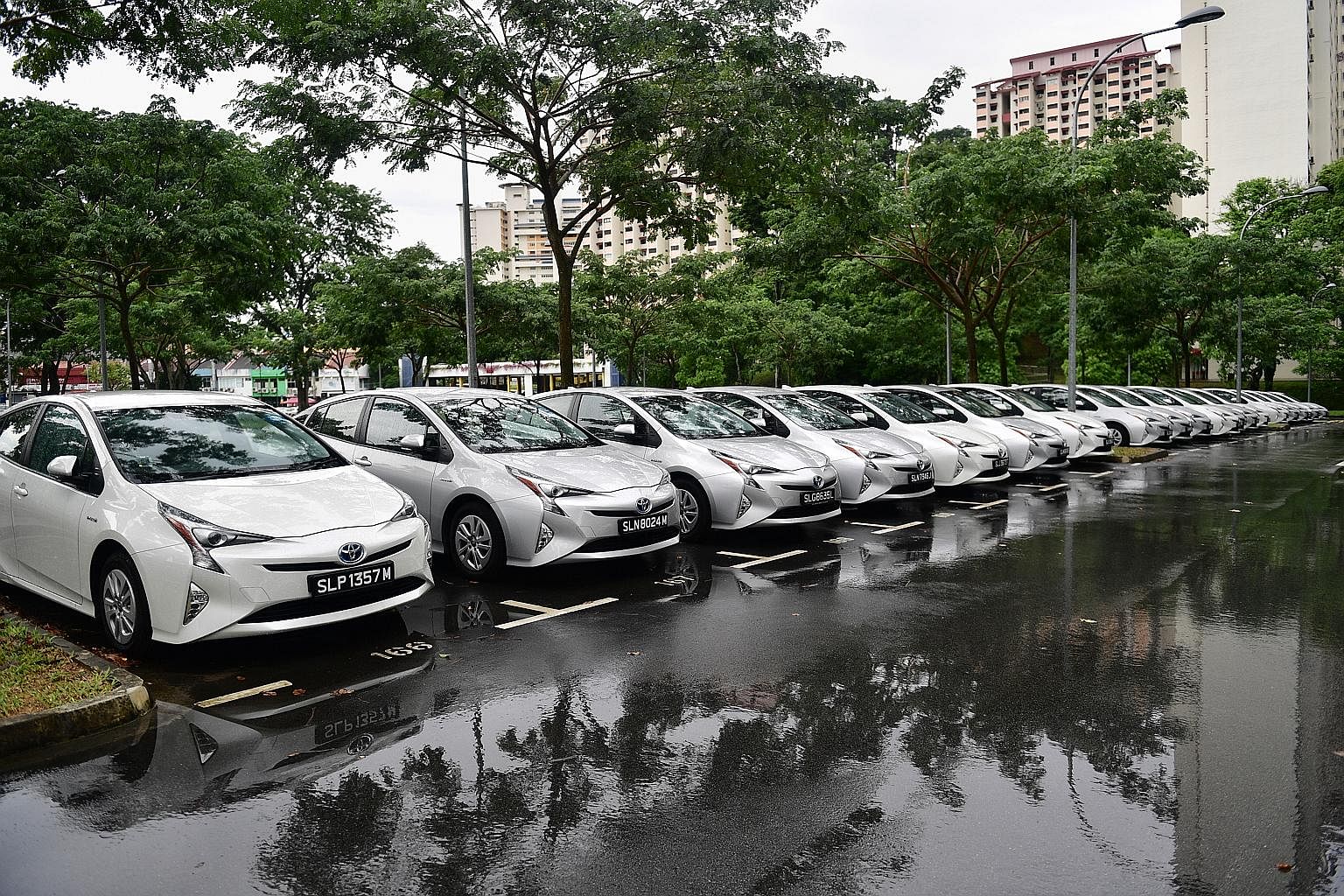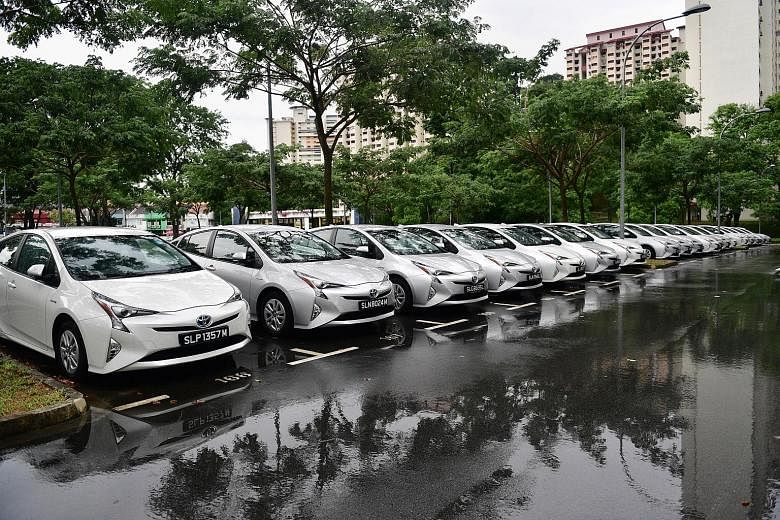I don't envy the Land Transport Authority (LTA).
On top of ensuring that Singapore's public transport system is running flawlessly and that roads are free-flowing - seemingly insurmountable tasks of late - the regulator now has to deal with a host of disruptors who are appearing to be as much of a bane as they are a boon.
I am talking about things such as the Active Mobility Bill (which governs use of bicycles, e-bikes and other personal mobility devices), bicycle-sharing and the constantly evolving private-hire car industry led by Uber and Grab.
Almost overnight, these elements are taking up a huge chunk of LTA's bandwidth. Not that it hasn't already been stretched. With sea changes such as bus contracting, a new rail financing framework and autonomous vehicles, the authority has had to learn to handle a lot more, very quickly.
But buses, trains and optimal use of road capacity (which advocates of driverless cars tout) are crucial tasks LTA must excel in. They affect more than 90 per cent of daily trips here.
The new elements, however, seem to be jostling for as much attention. And I worry that LTA's competency will be tested to breaking point if no one else steps in to help.

Even without infringements making the news, they are clearly visible to anyone who uses walkways, cycling paths and roads. And they are becoming quite rampant.
Go to any park connector and you will easily spot a rash of illegally modified e-scooters breaking speed limits with blinding LEDs. They have been seen on expressways, with at least one in a Kallang-Paya Lebar Expressway tunnel.
The same goes for e-bikes, which have become the choice for folks who deem bicycles too slow and motorbikes too costly.
The number of fatal and injurious accidents involving these devices has not been revealed, but it will, in all likelihood, rise as these products become more accessible.
Bike-sharing is becoming another pet peeve for many. Bicycles strewn about carelessly, blocking footpaths and causing an eyesore in Singapore's carefully manicured urban landscape do not seem to be worth the good that they bring. Many are also vandalised, with missing seats and handlebars askew. Many of the bike-share operators are from China, which has already been grappling with mountains of missing and abandoned bikes.
Bike-share seems like a good idea. And it can be, if we have a civic-minded population. Otherwise, it is better for people who want to cycle to buy their own bicycles. They are inexpensive and many are foldable, so they can be taken onto buses and trains.
I see a number of bike-share bicycles in my housing estate. Most have stayed in one spot for weeks on end. Beyond their decrepit condition, I must admit they are not massively intrusive, nor do they pose a huge hazard to others.
Not so private-hire cars. If you come across a car that is behaving in an errant or erratic way, chances are that it is a private-hire car. You can now identify them by a decal.
Why are these cars more prone to being driven badly? There are many reasons, including driver fatigue (like cabbies, private-hire drivers clock a lot more kilometres than regular motorists); unfamilarity with route (these drivers are not trained like cabbies, so most rely solely on their GPS gadgets, which do not always work well or choose the best route); inexperience (many drivers are either young or have limited years behind the wheel) and poor vehicle condition (such cars are less stringently inspected than cabs and rental companies sometimes fob off lemons to inexperienced drivers who don't know better).
But we have rules and regulations, you say? Yes, we do. But they are not always well enforced.
Take the private-hire car that has been parking illegally (double white line, against traffic, round a blind corner) in my estate. I have made three informal and three formal complaints over the last two months. But it is still there. And in those two months, it has had at least one accident, going by a damaged body panel.
If LTA cannot crack down on one illegally parked car, it faces a monumental task addressing the tens of thousands of moving single-wheelers, two-wheelers and four-wheelers that are "disrupting" the land transport sector.
Already, we are seeing signs of disregard for the law, such as cabbies and private-hire drivers doubling as couriers (which they are not allowed to do). And folks openly selling removable private-hire decals. Tinted decals that mask the LTA-issued decals are also available.
Then there are services masquerading as carpools, which do not come under the ambit of private-hire law.
When I was in Chicago last month, I encountered several private car drivers touting for fares. They do it openly, sounding their horns and shouting to ask if you want a ride. Anecdotal evidence suggests that this is already happening here, although more discreetly.
What is LTA to do?

